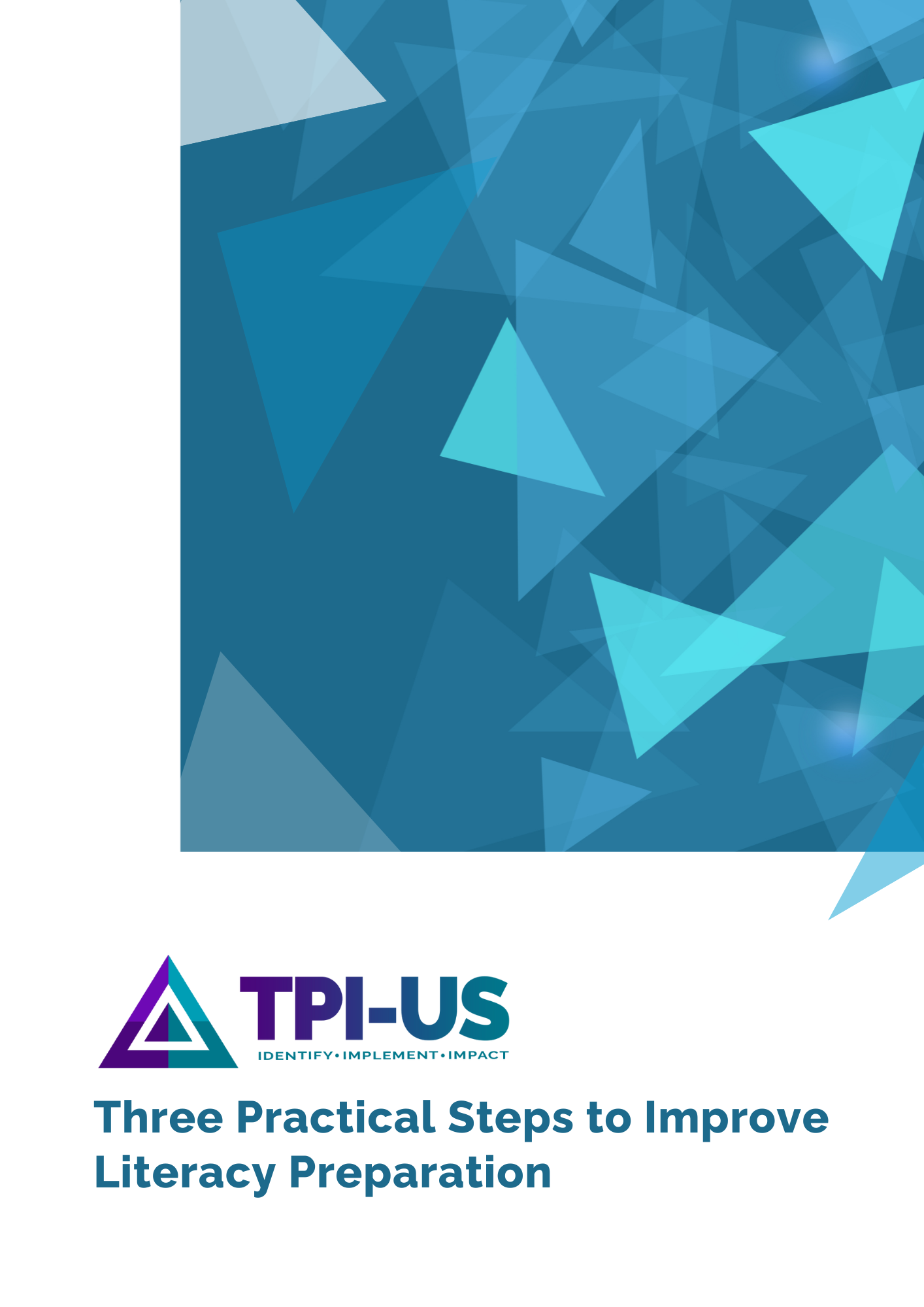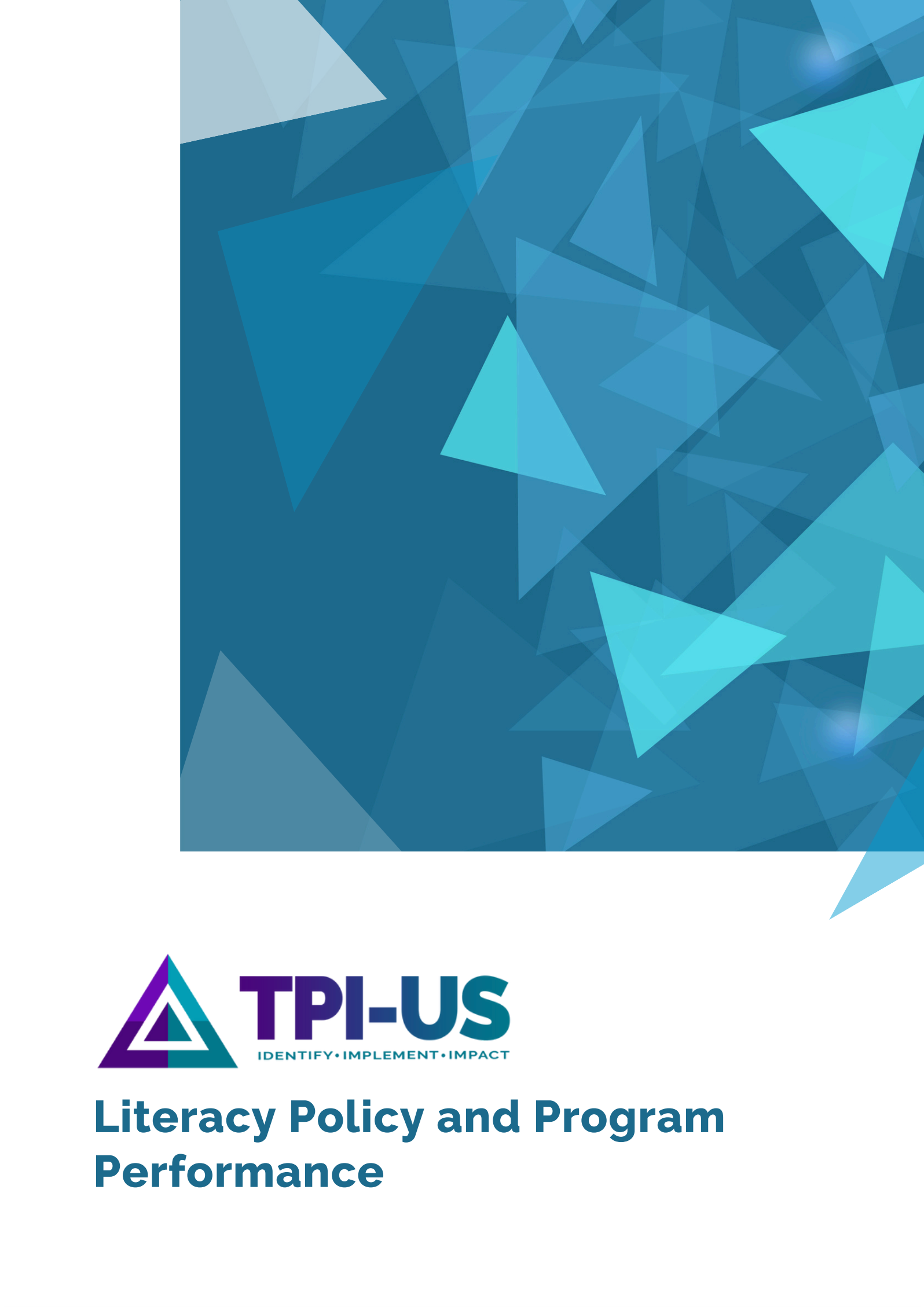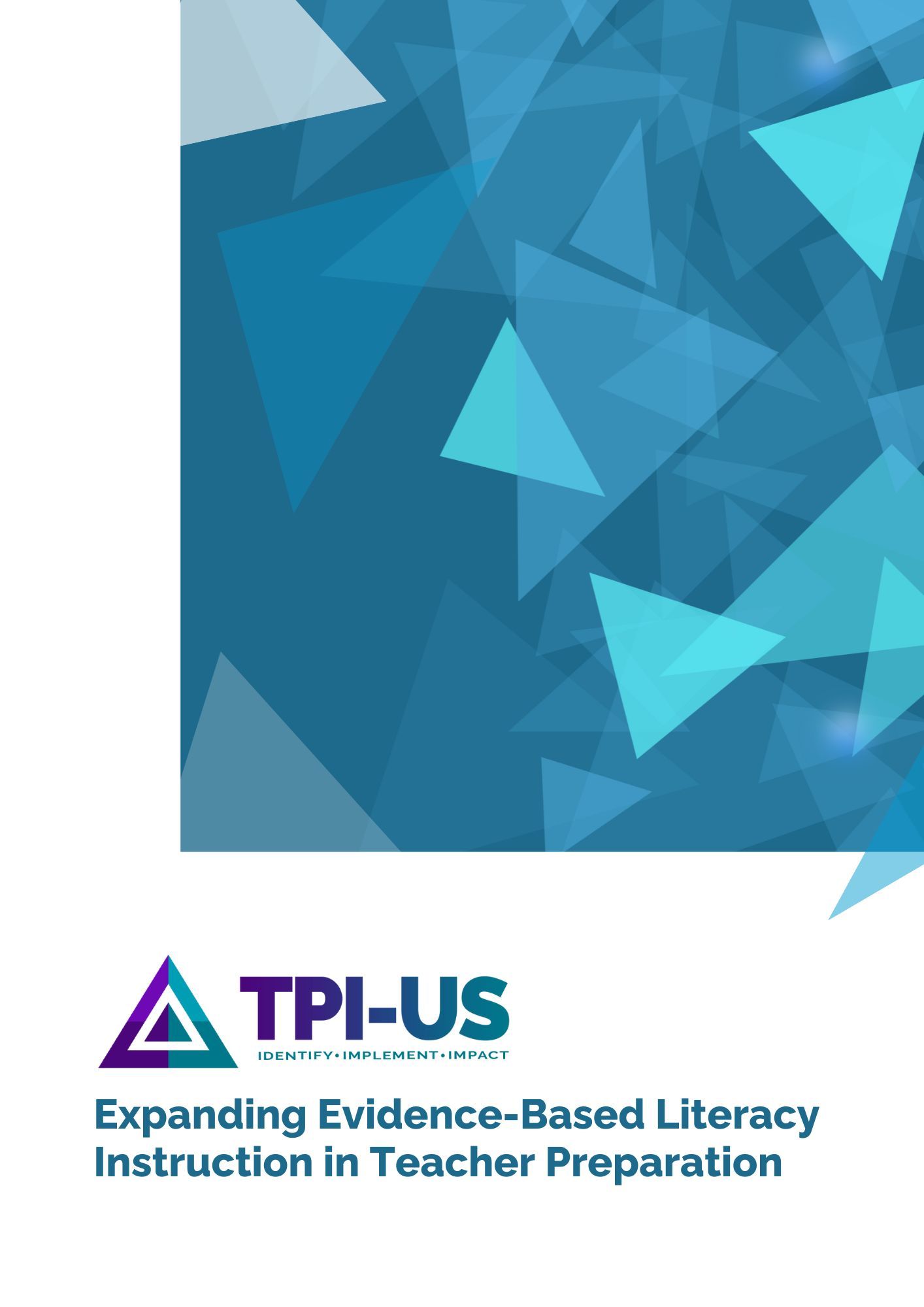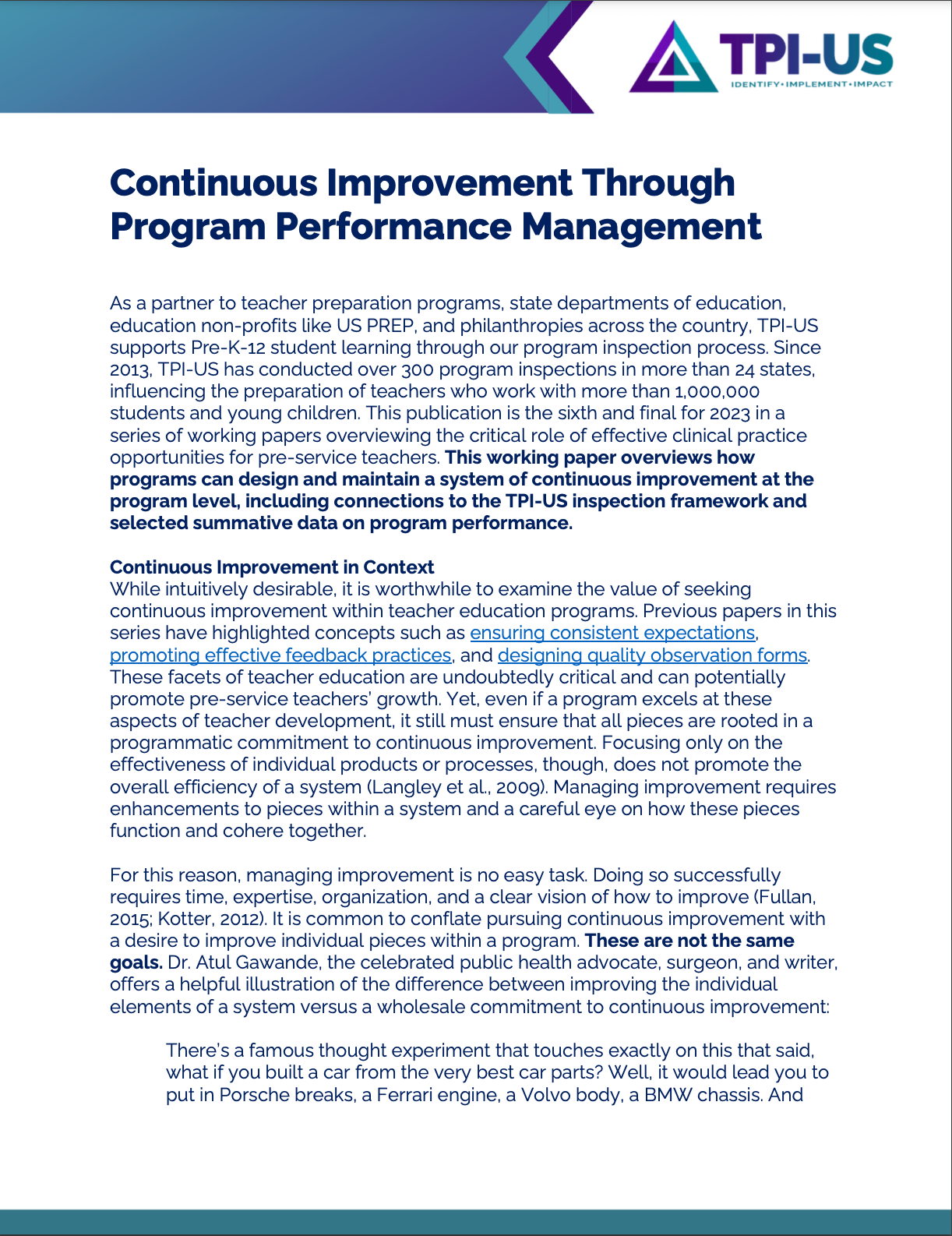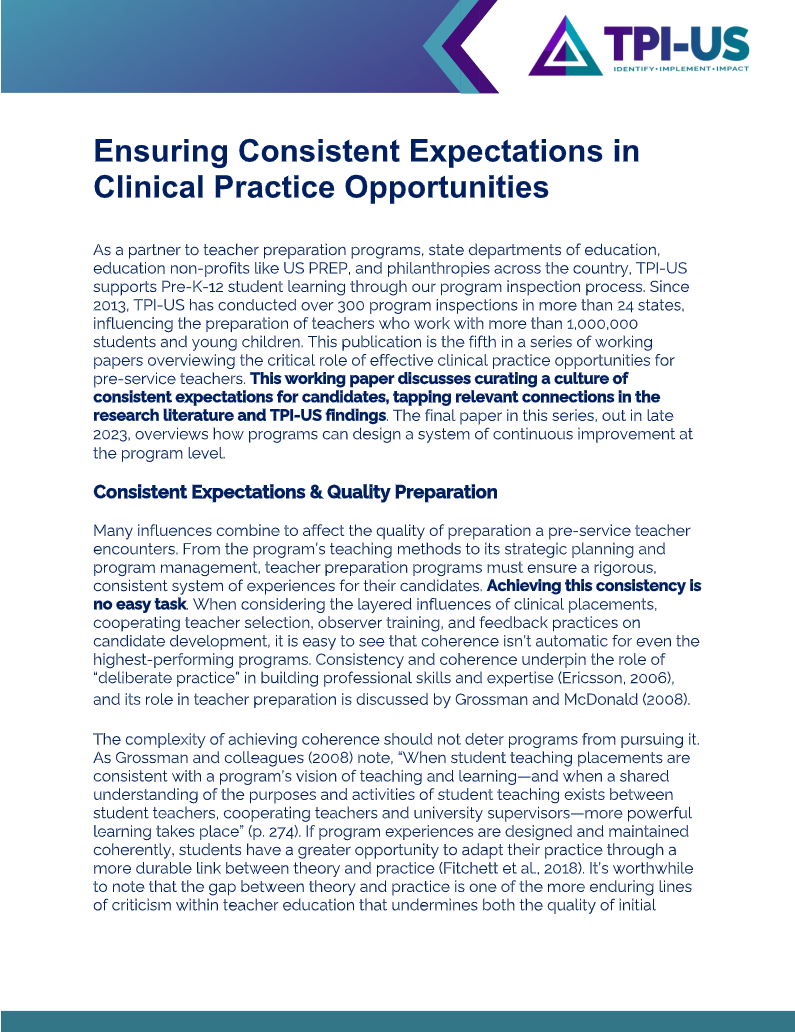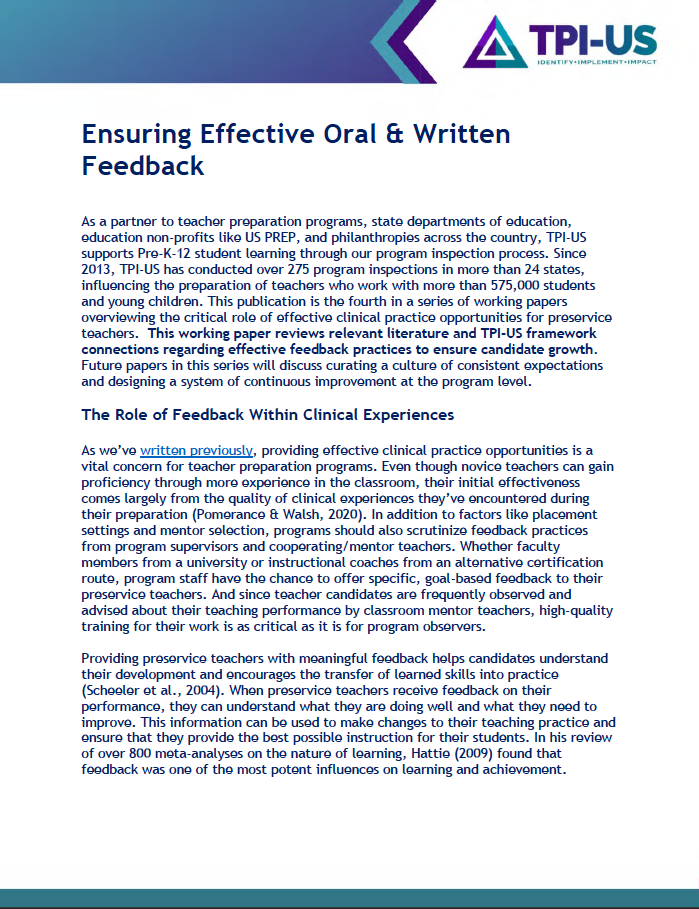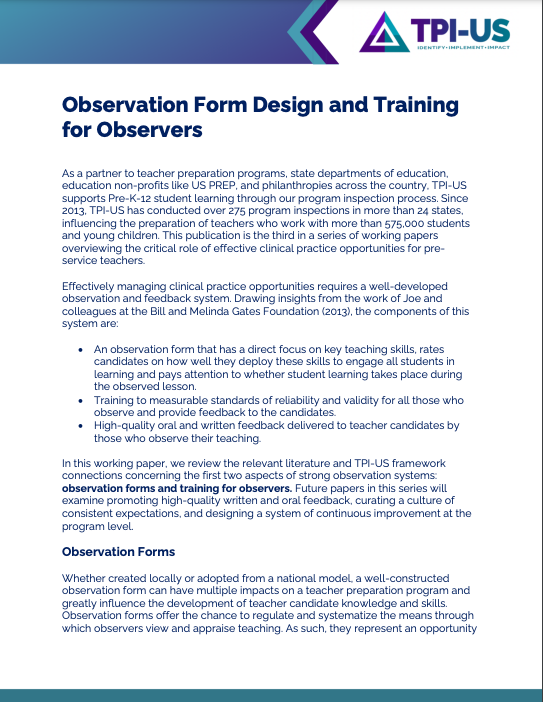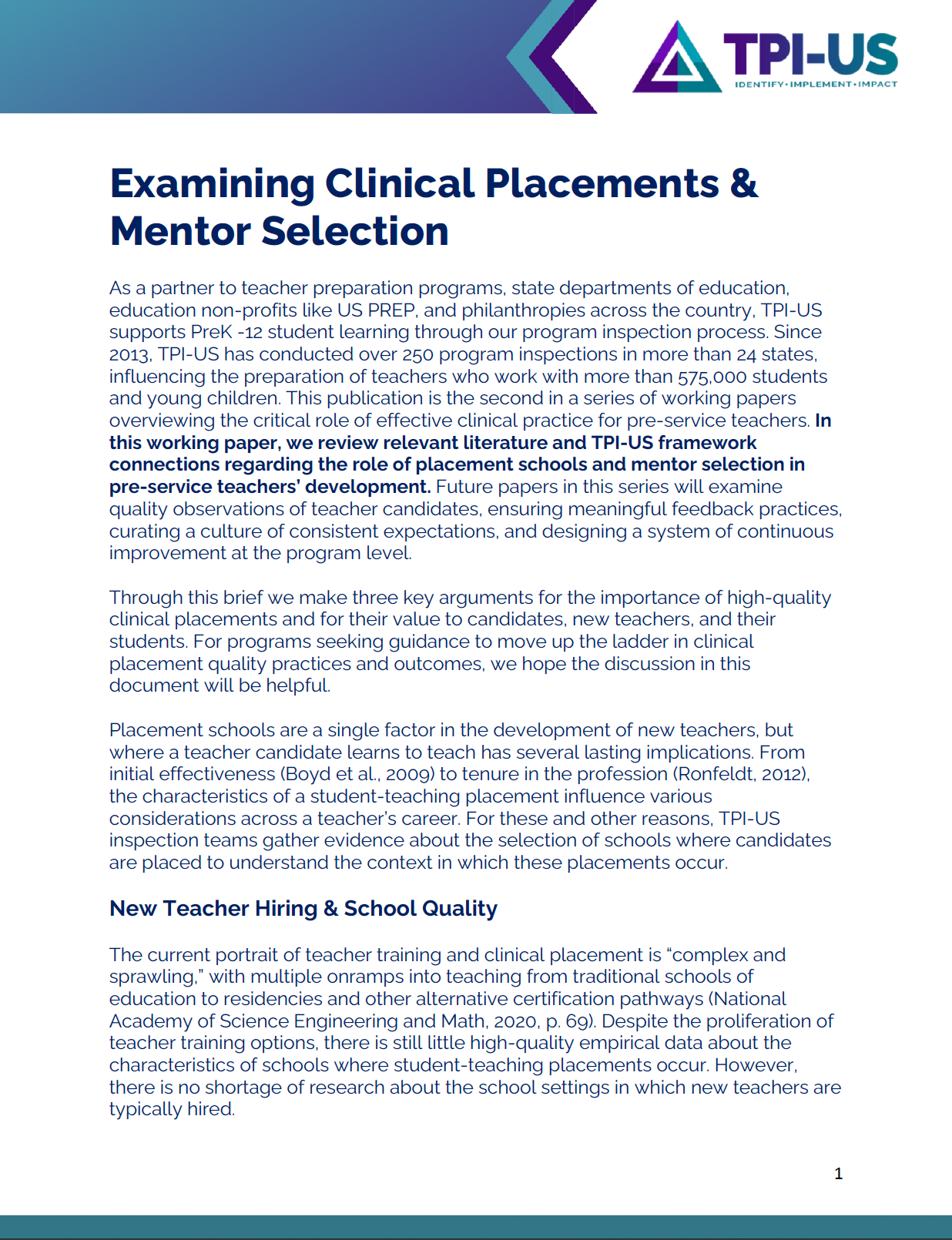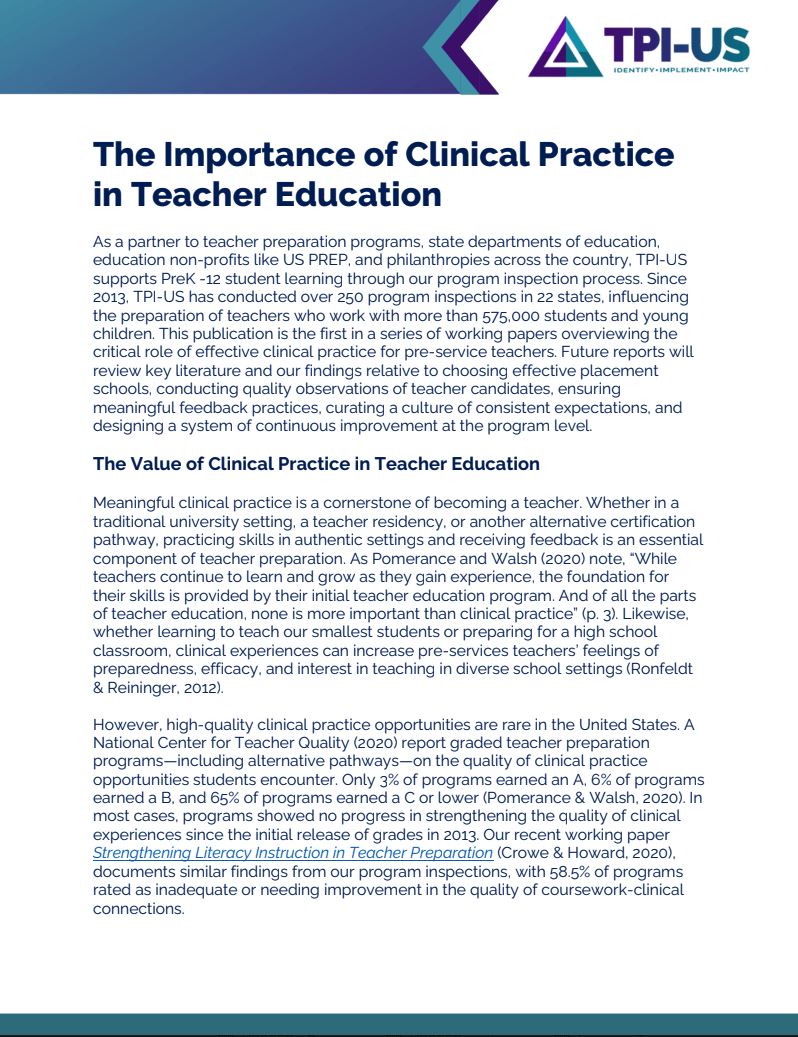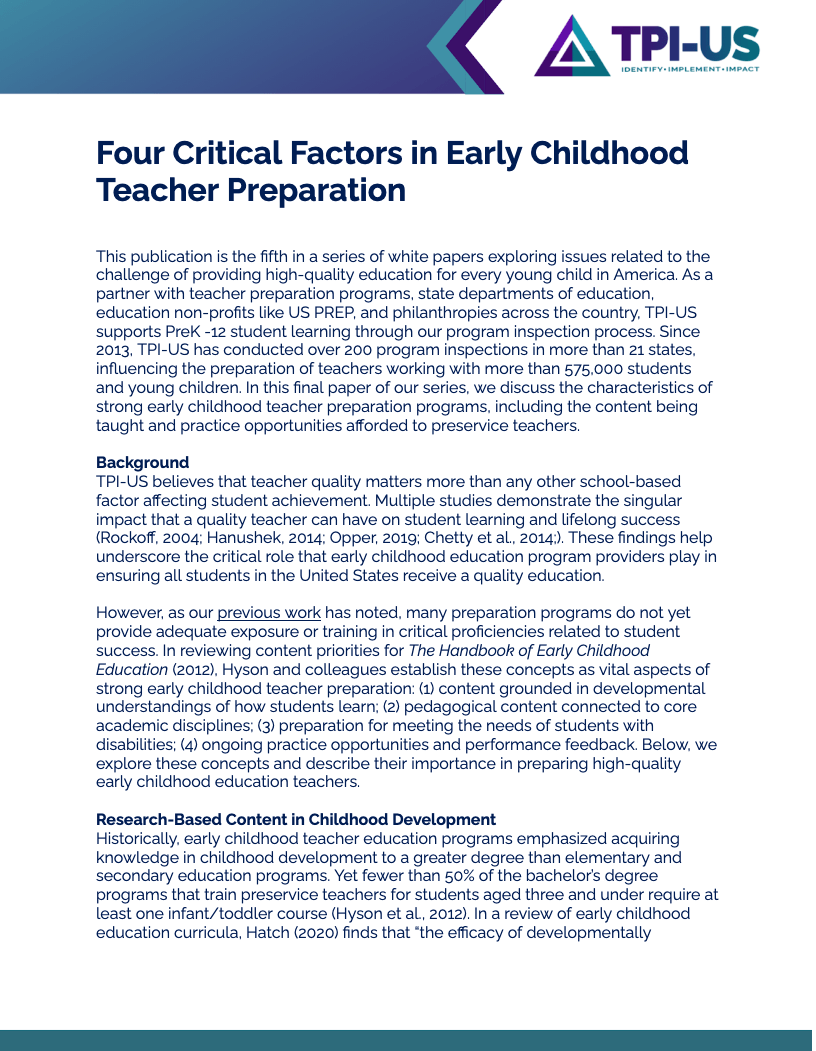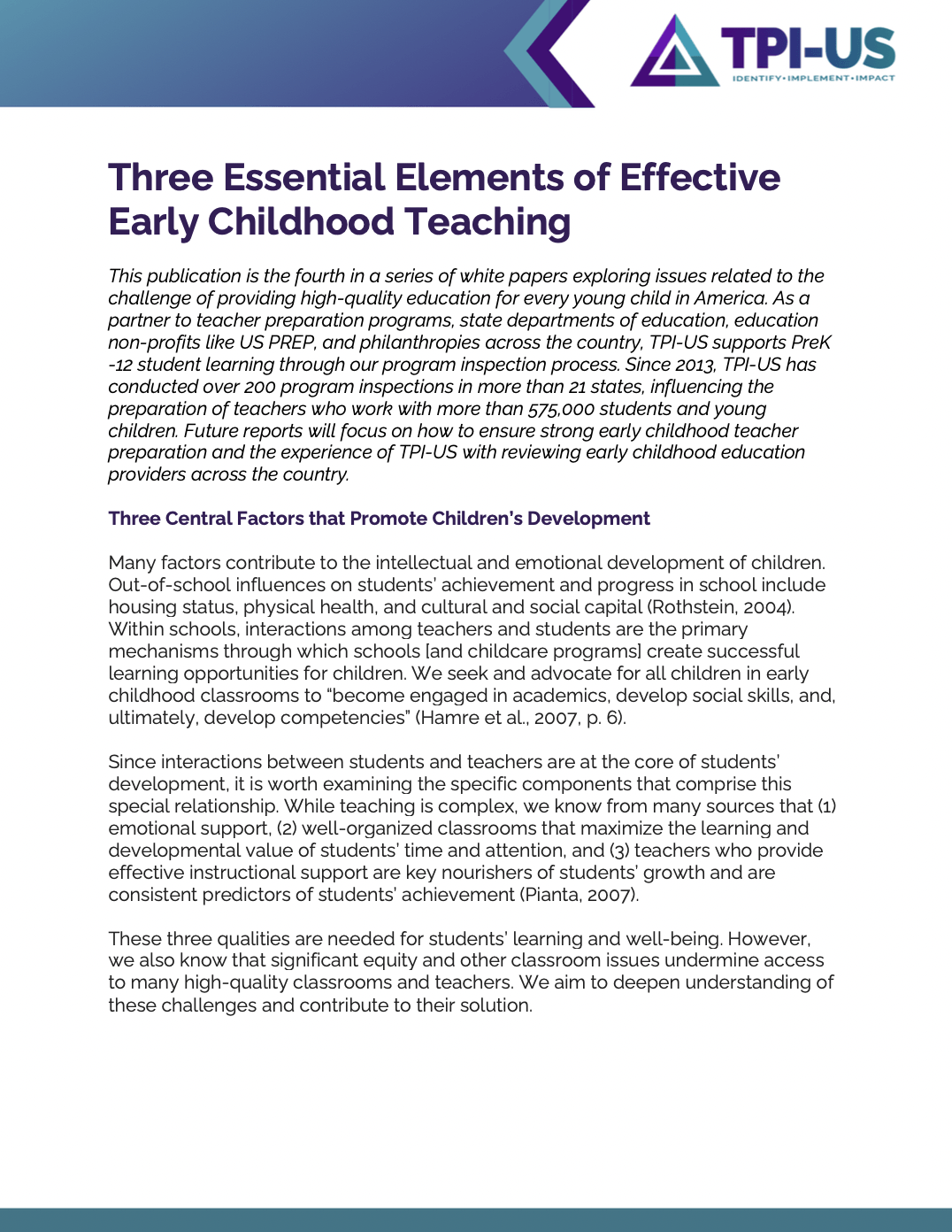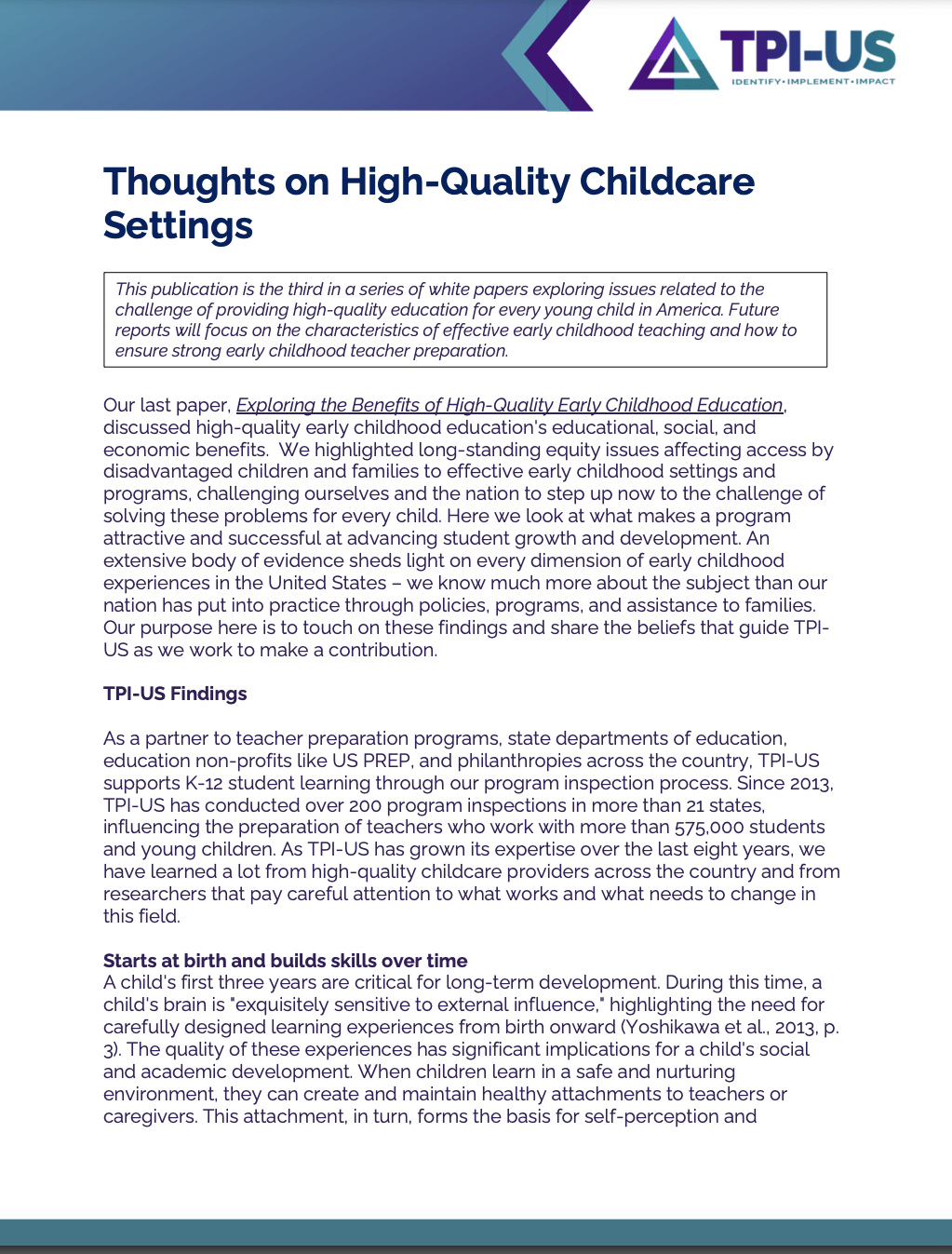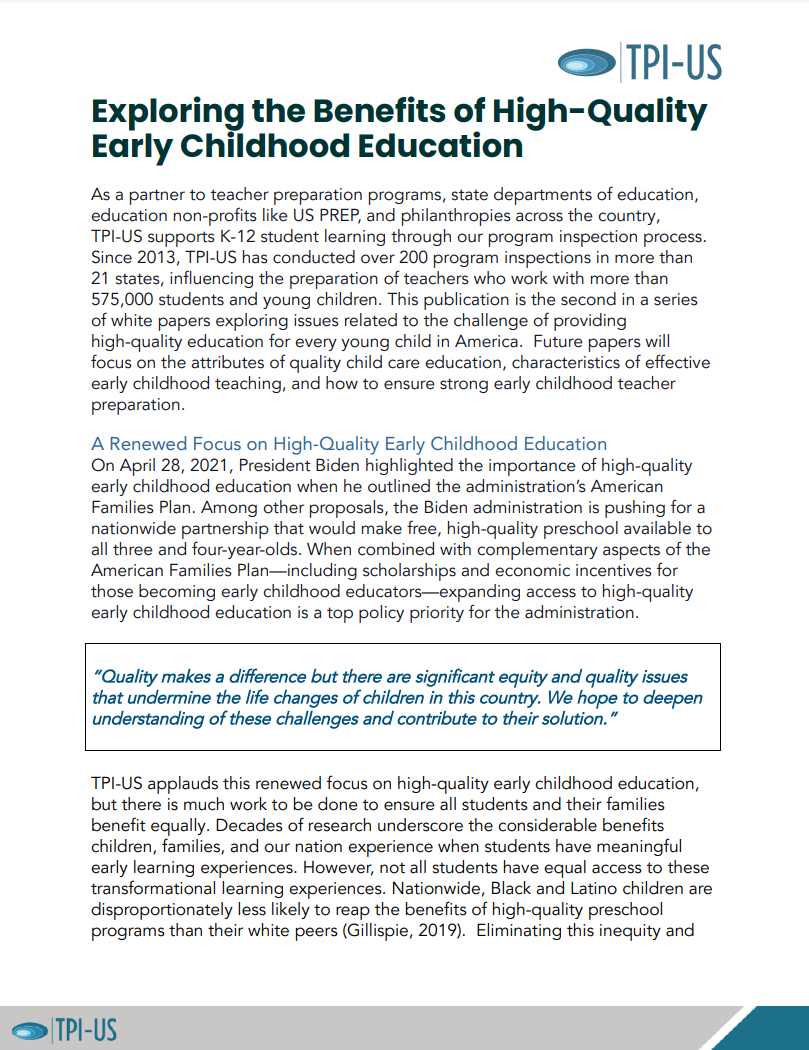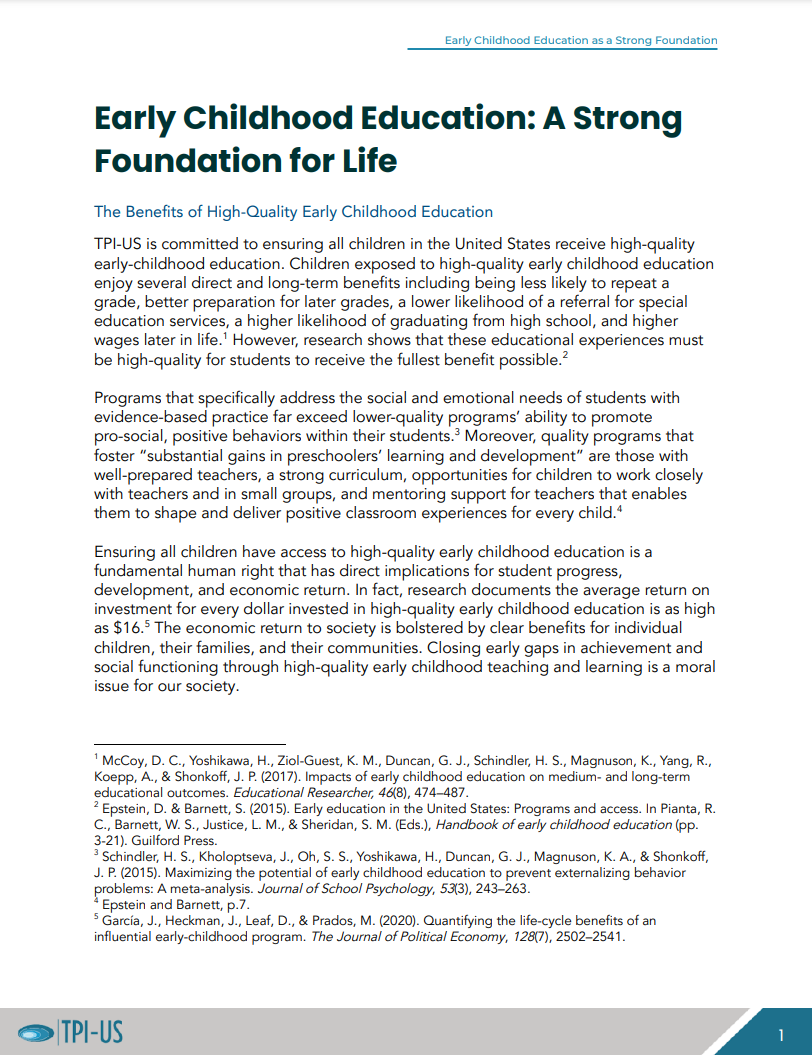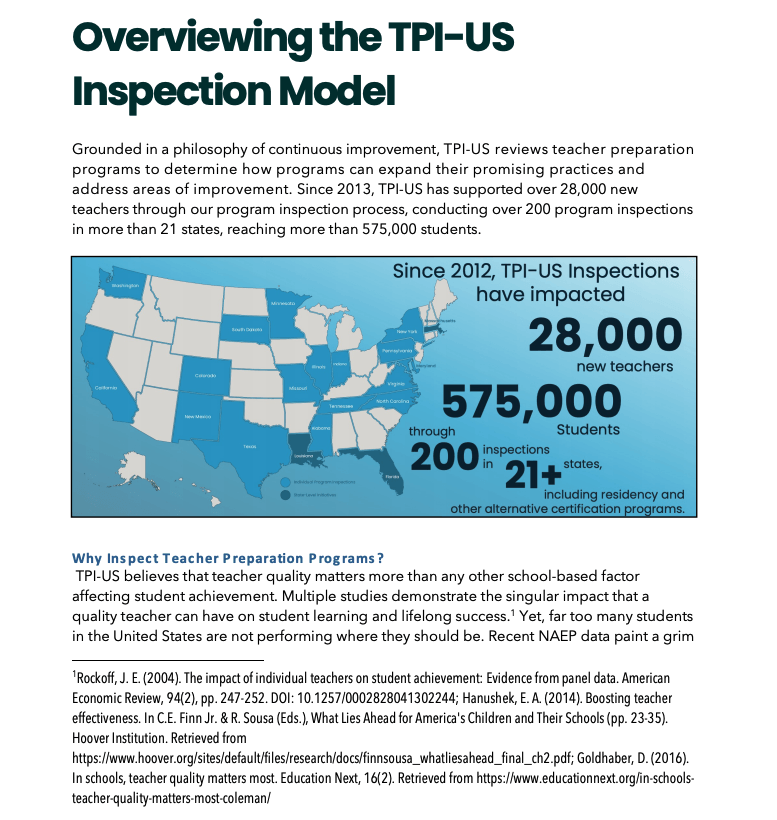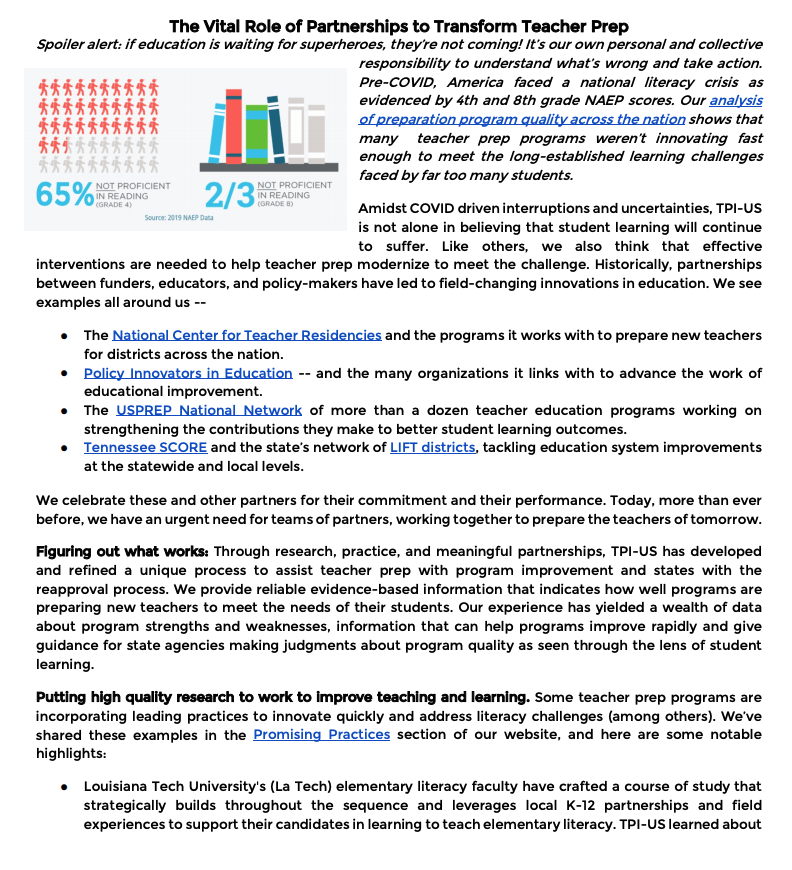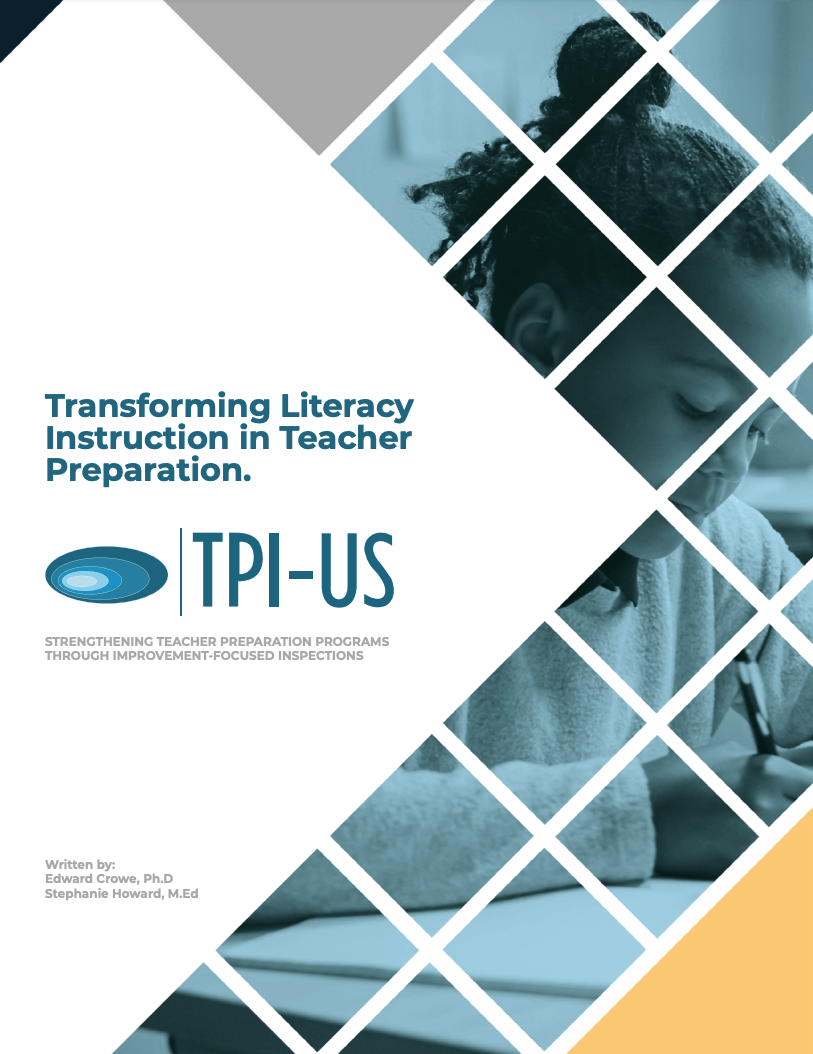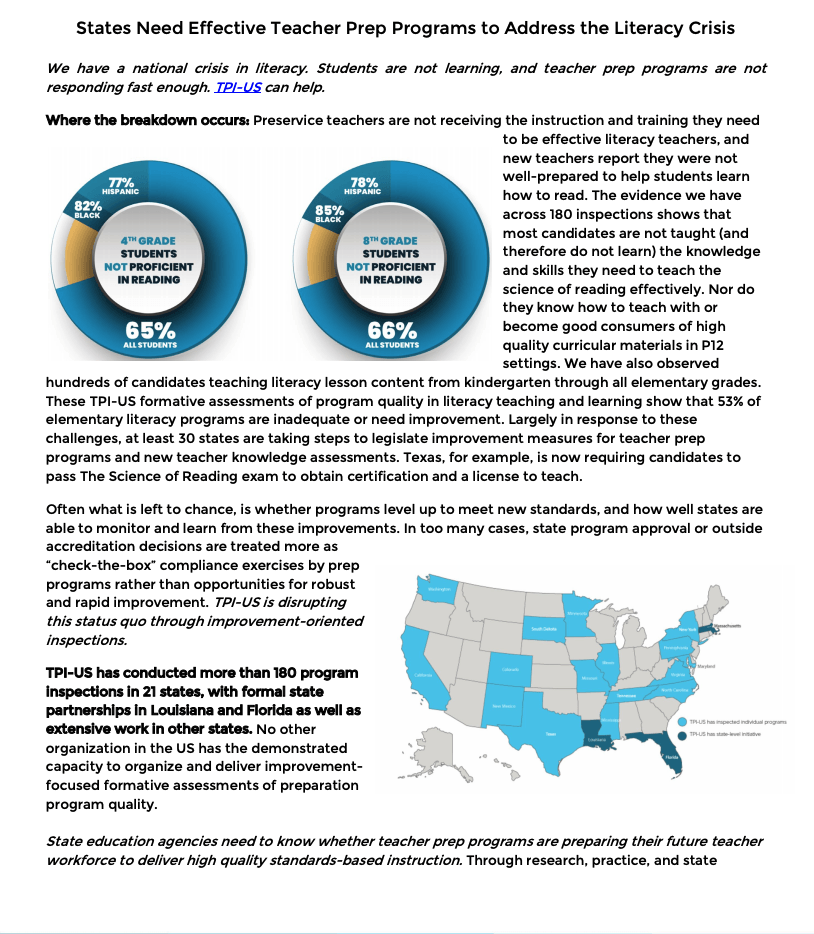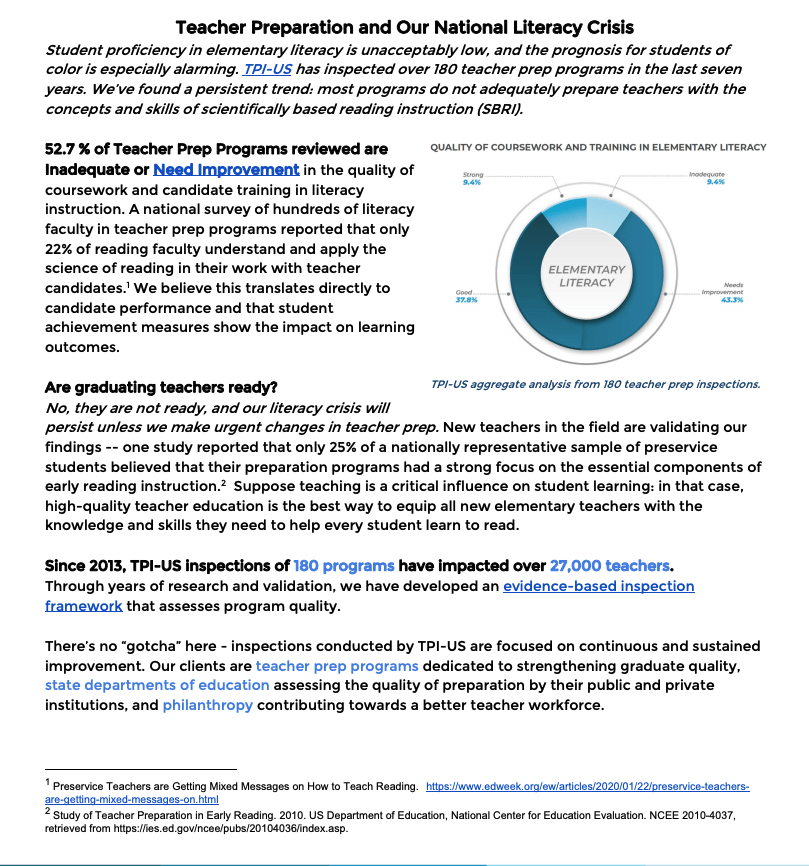TPI-US believes that high-quality research can transform the lives of students and teachers through the generation and dissemination of effective practices and sound policies.
Continuous Improvement Through Program Performance Management
December 18th, 2023
This publication is the sixth in a series of working papers overviewing the critical role of effective clinical practice opportunities for pre-service teachers. In this working paper, we overview how programs can design and maintain a system of continuous improvement at the program level, including connections to the TPI-US inspection framework and selected summative data on program performance.
Ensuring Consistent Expectations in Clinical Practice Opportunities
October 12th, 2023
This publication is the fifth in a series of working papers discussing the role of effective clinical practice opportunities for pre-service teachers.
This working paper discusses curating a culture of consistent expectations for candidates, tapping relevant connections in the research literature and TPI-US findings.
Ensuring Effective Oral & Written Feedback
June 12th, 2023
This publication is the fourth in a series of working papers overviewing the critical role of providing effective clinical practice opportunities for preservice teachers. A key aspect of meaningful clinical practice is a cycle of deliberate practice and feedback. In this paper, we review relevant literature and TPI-US framework connections regarding effective feedback practices within clinical settings.
Observation Form Design and Training for Observers
April 18th, 2023
This publication is the third in a series of papers overviewing the critical role of providing effective clinical practice opportunities for pre-service teachers. Managing clinical practice opportunities requires a well-developed observation and feedback system. In this working paper, we review the relevant literature and TPI-US framework connections concerning the design of observation forms and the observation and feedback training that observers receive.
Examining Clinical Placements & Mentor Selection
February 6th, 2023
This publication is the second in a series of working papers overviewing the critical role of effective clinical practice for pre-service teachers. Through this brief we make three key arguments for the importance of high-quality clinical placements and for their value to candidates, new teachers, and their students.
The Importance of Clinical Practice in Teacher Education
November 4th, 2022
Meaningful clinical practice is a cornerstone of becoming a teacher. Whether in a traditional university setting, a teacher residency, or another alternative certification pathway, practicing skills in authentic settings and receiving feedback is an essential component of teacher preparation. This publication is the first in a series of working papers overviewing the critical role of providing effective clinical practice opportunities for pre-service teachers.
Four Critical Factors in Early Childhood Teacher Preparation
June 1st, 2022
This publication is the fifth in a series of white papers exploring issues related to the challenge of providing high-quality education for every young child in America. As a partner with teacher preparation programs, state departments of education, education non-profits like US PREP, and philanthropies across the country, TPI-US supports PreK -12 student learning through our program inspection process. Since 2013, TPI-US has conducted over 200 program inspections in more than 21 states, influencing the preparation of teachers working with more than 575,000 students and young children. In this final paper of our series, we discuss the characteristics of strong early childhood teacher preparation programs, including the content being taught and practice opportunities afforded to preservice teachers.
Three Essential Elements of Effective Early Childhood Teaching
January 31, 2022
Many factors contribute to the intellectual and emotional development of children. Interactions among teachers and students are the primary mechanisms through which schools [and childcare programs] create successful learning opportunities for children. Our purpose here is to examine the specific components that comprise this special relationship.
Thoughts on High-Quality Childcare Settings
December 1, 2021
Our last paper, Exploring the Benefits of High-Quality Early Childhood Education, discussed high-quality early childhood education's educational, social, and economic benefits. We highlighted long-standing equity issues affecting access by disadvantaged children and families to effective early childhood settings and programs, challenging ourselves and the nation to step up now to the challenge of solving these problems for every child. Here we look at what makes a program attractive and successful at advancing student growth and development. An extensive body of evidence sheds light on every dimension of early childhood experiences in the United States – we know much more about the subject than our nation has put into practice through policies, programs, and assistance to families. Our purpose here is to touch on these findings and share the beliefs that guide TPIUS as we work to make a contribution.
Exploring the Benefits of High-Quality Early Childhood Education
August 23rd, 2021
As a partner to teacher preparation programs, state departments of education, education non-profits like US PREP, and philanthropies across the country, TPI-US supports K-12 student learning through our program inspection process. Since 2013, TPI-US has conducted over 200 program inspections in more than 21 states, influencing the preparation of teachers who work with more than 575,000 students and young children. This publication is the second in a series of white papers exploring issues related to the challenge of providing high-quality education for every young child in America. Future papers will focus on the attributes of quality child care education, characteristics of effective early childhood teaching, and how to ensure strong early childhood teacher preparation.
Early Childhood Education: A Strong Foundation for Life
July 2nd, 2021
TPI-US is committed to ensuring all children in the United States receive high-quality early-childhood education. Children exposed to high-quality early childhood education enjoy several direct and long-term benefits including being less likely to repeat a grade, better preparation for later grades, a lower likelihood of a referral for special education services, a higher likelihood of graduating from high school, and higher wages later in life.
Overviewing the TPI-US Inspection Model
May 7th, 2021
Grounded in a philosophy of continuous improvement, TPI-US reviews teacher preparation programs to determine how programs can expand their promising practices and address areas of improvement. Since 2013, TPI-US has supported over 28,000 new teachers through our program inspection process, conducting over 200 program inspections in more than 21 states, reaching more than 575,000 students.
The Vital Role of Partnerships to Transform Teacher Prep
October 27, 2020
Spoiler alert: if education is waiting for superheroes, they’re not coming! It’s our own personal and collective responsibility to understand what’s wrong and take action. Pre-COVID, America faced a national literacy crisis as
evidenced by 4th and 8th grade NAEP scores. Our analysis of preparation program quality across the nation shows that many teacher prep programs weren’t innovating fast enough to meet the long-established learning challenges faced by far too many students.
Transforming Literacy Instruction in Teacher Preparation
October 12, 2020
Student literacy is a national crisis: 4th and 8th-grade proficiency in
literacy is unacceptably low. For students of color, fewer than 20% score
proficient or better on NAEP, levels of performance that show little
change over the years.
States Need Effective Teacher Prep Programs to Address the Literacy Crisis
September 14, 2020
Where the breakdown occurs:
Preservice teachers are not receiving the instruction and training they need to be effective literacy teachers, and new teachers report they were not well-prepared to help students learn how to read. The evidence we have across 180 inspections shows that most candidates are not taught (and therefore do not learn) the knowledge and skills they need to teach the science of reading effectively. Nor do they know how to teach with or become good consumers of high quality curricular materials in P12 settings.
Teacher Preparation and Our National Literacy Crisis
August 28, 2020
Student proficiency in elementary literacy is unacceptably low, and the prognosis for students of color is especially alarming. TPI-US has inspected over 180 teacher prep programs in the last seven years. We’ve found a persistent trend: most programs do not adequately prepare teachers with the concepts and skills of scientifically based reading instruction (SBRI).


